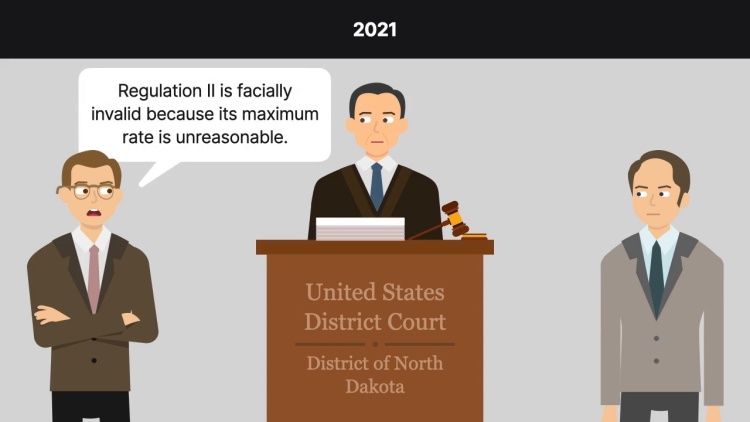Corner Post, Inc. v. Board of Governors of the Federal Reserve System
United States Supreme Court
144 S. Ct. 2440 (2024)
- Written by Angela Patrick, JD
Facts
Under federal law, the Federal Reserve Board (the board) (defendant) was the administrative agency tasked with setting standards to assess whether the fees debit-card issuers charged to merchants were reasonable and proportional to the issuers’ transaction costs. In 2011, the board adopted Regulation II, setting a maximum rate for these fees. In 2018, convenience store Corner Post, Inc. (plaintiff) opened for business and began accepting debit cards. In 2021, Corner Post joined a lawsuit against the board. This lawsuit included an Administrative Procedure Act (APA) claim alleging that Regulation II was facially invalid because its maximum rate was unreasonable. Under 28 U.S.C. § 2401(a), the general time limit for bringing a civil claim against the federal government was “six years after the right of action first accrues.” The district court ruled that Corner Post’s APA claim had accrued when Regulation II was enacted, in 2011, and dismissed the 2021 claim as untimely. The Eighth Circuit affirmed the dismissal, ruling that a facial challenge to an administrative regulation accrued when the regulation was issued because a facial challenge alleged that a regulation was invalid as written. Five other circuits agreed with this interpretation. In contrast, the Sixth Circuit had ruled that an APA claim, even a facial challenge, accrued only once the plaintiff was personally injured by a final agency action. The United States Supreme Court granted certiorari to resolve the circuit split.
Rule of Law
Issue
Holding and Reasoning (Barrett, J.)
Concurrence (Kavanaugh, J.)
Dissent (Jackson, J.)
What to do next…
Here's why 907,000 law students have relied on our case briefs:
- Written by law professors and practitioners, not other law students. 47,100 briefs, keyed to 996 casebooks. Top-notch customer support.
- The right amount of information, includes the facts, issues, rule of law, holding and reasoning, and any concurrences and dissents.
- Access in your classes, works on your mobile and tablet. Massive library of related video lessons and high quality multiple-choice questions.
- Easy to use, uniform format for every case brief. Written in plain English, not in legalese. Our briefs summarize and simplify; they don’t just repeat the court’s language.





